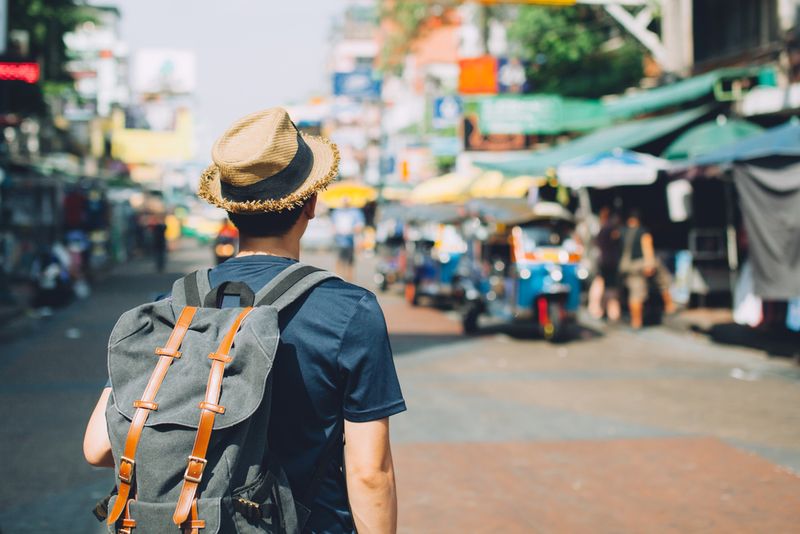Every year it seems there's a fresh batch of articles that espouse the benefits and joys of solo travel—and why it's a must for everyone at some point in their lives. For full disclosure: We agree! We have found that traveling alone is one of the most empowering, fun, and enriching experiences. But not everyone is up for it, be it from fear, family, finances, or any number of roadblocks (which are all valid). Even if you can, you may have some apprehension about going forward with a solo trip—as there's comfort in traveling with a partner or group. Luckily, modern technology has made it increasingly easier for those wishing to go their way with apps that connect you with gourmet meals and safety tools to keep you feeling comforted far from home. Also: Some useful ole common sense tips help too. So, if you are considering—and have the time and means—here's what you need to know.
Travel with purpose.
What Do You Want Out of the Trip?
Because solo travel is usually a larger undertaking, you want to make sure the outcome will be worth it. Plus: It's all up to you. When traveling with family or friends, there are other needs and wants to consider. Here, it's all about your goals and purpose. "You need to think about what you want out of a trip," says Sheryl Ott, avid traveler and founder of Dare To Detour. "Know what you want, first, and go to where you can breathe it in the air." What does this mean in practice? Different locations inherently offer different experiences: You're going to have a wildly different experience from a city tour than you would the rugged American West or a small beach town. So think about your goals—whether it be culture, quiet, or a challenge—and try to tailor your location and experiences around them.

Do Your Research.
Sure, this means the basic stuff—from simple geography to turns of phrase—but it also means the cultural aspect: Always do your research on cultural norms and what you should know about the place you are going.
How to spend responsibly:
One of the benefits of group travel is that you can split costs into a lot of areas: hotel, food, supplies, and the like. When you're on your own, you're the sole financier. Of course, you can adhere to cheaper travel basics—scout flight deals, travel in the offseason, and the like—but there are other ways to be more responsible. Here's how to bring the cost down if you're on your own:
Start Small and Build-up
You don't need to go full Eat, Pray, Love for your solo travel. If you're not there financially yet, or perhaps just not ready for an around-the-world trip, keep it close to home. A staycation or near-cation is nothing new, but hotel apps can help you take it to the next level: Book a last-minute room for yourself with hotel booking sites, like Hotels Tonight, where you can find luxe rooms marked way down from their asking price.
Bring Your Reusable Goods Around With You
It's small but adds up: As a low-waste expert and nutritionist Abby K. Cannon, J.D., R.D., tells us, bring around a reusable water bottle—use one with a filter if you can't be sure of the tap water—so you can stay hydrated without buying one-time-use bottles. Plus: environmentally friendly.
Avoid Hidden Fees
For some group tours, outings, or retreats, going it alone might cost you: It's called the single supplement fee. So before you book anything, just pay attention to the fine print.
Split Meals with Strangers!
Eating out alone is incredibly rewarding and empowering—but can add up quickly if you need to do it for every meal. Plus: A benefit of eating with a group of people is you can often share many plates, sampling various dishes. And that's harder to do on your own. Enter: apps like EatWith or Meal Sharing. You can find (again, safe and verified) group meals with locals or other travelers, cooking classes, or food tours—with prices that can accommodate any budget.